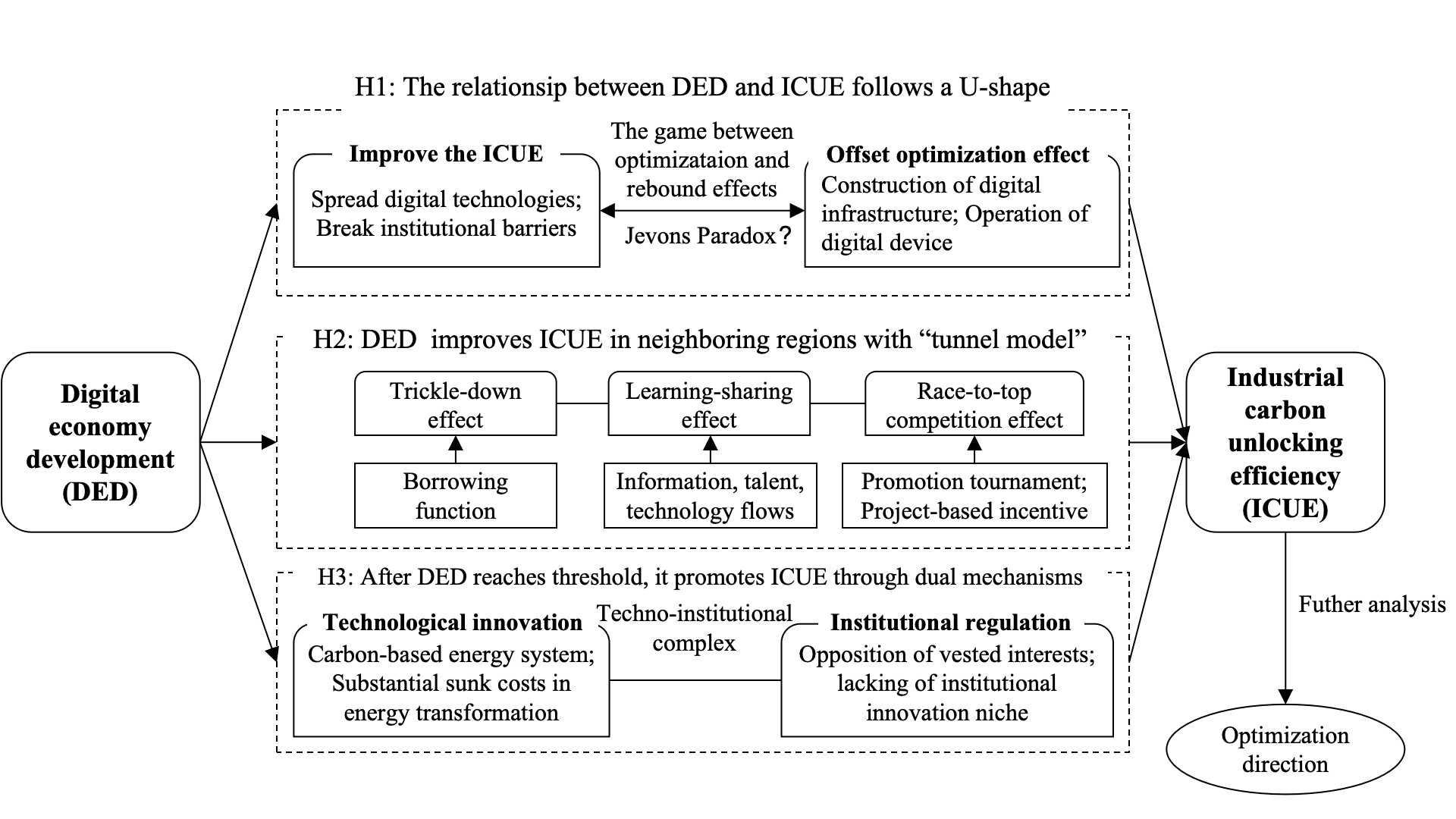
The digital economy development (DED) contributes to breaking the path dependency dilemma of industrial carbon lock-in and achieving high-quality development that balances economic and ecological benefits. This study, based on the panel data from 274 cities in China from 2013 to 2022, aims to identify the phased relationship between the digital economy development and industrial carbon unlocking efficiency (ICUE). The main findings are as follows: (1) The impact of digital economy development on industrial carbon unlocking efficiency exhibits a double-threshold effect. After verification through grouped instrumental variable (IV) regression, the conclusion remains valid. It shows a "U-shaped" relationship of first decreasing then increasing, and finally reaching equilibrium. (2) Digital economy development could significantly promote industrial carbon unlocking efficiency in multi-dimensional adjacent regions based on the "tunnel model"; (3) Once digital economy development enters maturity stage, industrial carbon unlocking efficiency is mainly improved through two key pathways: technological innovation and institutional regulation; (4) Based on training and simulations of existing samples, cities most likely to achieve optimal industrial carbon unlocking performance in digital industry development are mainly concentrated around China's "Hu Huanyong Line" and the southeast coastal areas, which can fully leverage their resource endowments, location advantages, and leading roles.
Total file downloads: 25